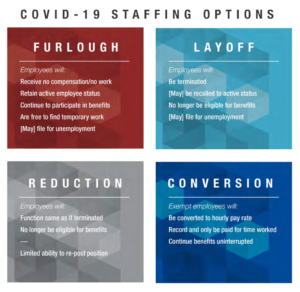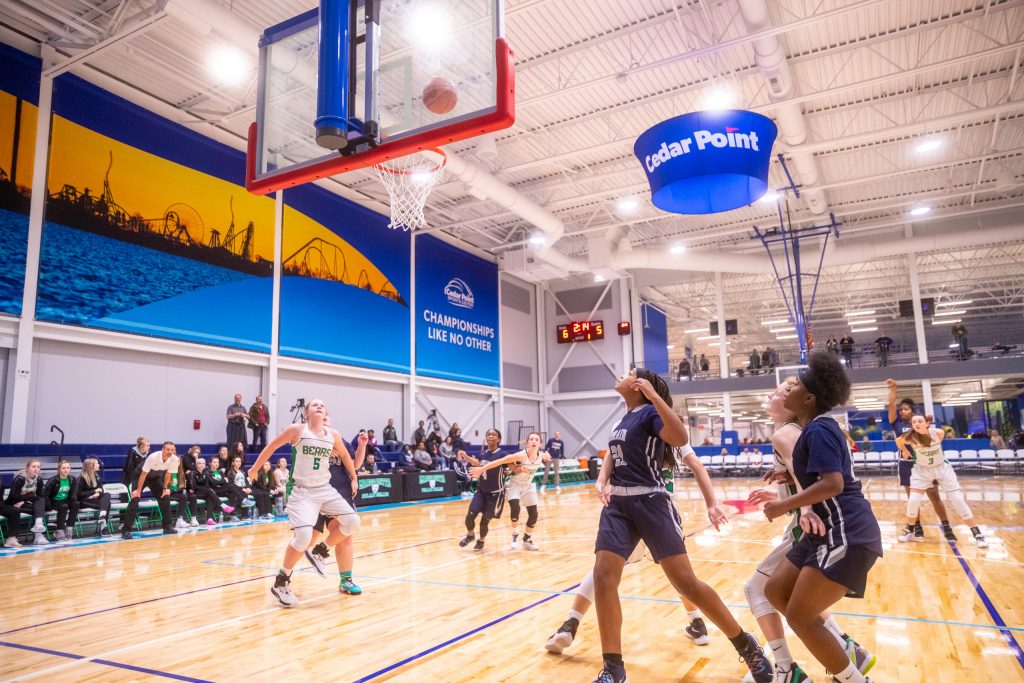The Coronavirus pandemic has already made an indelible impact on all facets of our world. The health of communities throughout the globe is of paramount importance. And while measures are being put in place, both individually and collectively, to stem the progression of the virus, a heightened focus must be placed on the preservation of our businesses as well. The youth sports industry, in particular, has felt the impact of the outbreak as event postponements and program suspensions have led to lost revenues and the reduction of the workforce.
At the Sports Facilities Companies, we’ve worked diligently to serve our industry by developing solutions that help position it for a full recovery. We recently held a webinar titled COVID-19 Response: Money Saving Measures for Owners and Operators, where we discussed ways in which facilities can streamline their operations during these difficult times and prepare for a brighter future. (If you missed it, the webinar can also be found on our COVID-19 resources page.)
This is the first of a series of articles that provide practical tips from the webinar. Below are a few containment procedures to perform in your facility that can help you stem the tide:
Stop Variable Expenses
Adjust labor costs: An unfortunate reality of events being on hold is that you may not be able to retain your entire workforce. As we move through the crisis, it may become necessary to layoff seasonal, hourly, and part-time staff specifically. However, it’s critical that you maintain contact with these employees as they will become a vital part of reestablishing events and programming.
Dealing with consumable items: Your facility will have a variety of items, especially in terms of food & beverage, that you will not be able to preserve. For these items consider the following procedures:
- Return packaged inventory, if possible
- Sell perishable items, if possible. The items that you are not able to sell can be donated to organizations who are helping people during this time.
- Freeze the remaining items
Reduce marketing/advertising expenditures: On a temporary basis, it’s prudent to reduce or halt marketing and advertising expenditures. This doesn’t mean halt all initiatives. During these uncertain times, it’s critical that your customers, community and stakeholders hear from you. They not only want to know about the status of events and programming, but there’s an opportunity to serve these audiences. Consider using social media as your primary platform for distributing messaging and maintaining connection. To learn more about how SFM Network venues are using social media to stay connected with their communities and to promote health, wellness, and fun, check out our recent article on our virtual programs.
Minimize Fixed Expenses
Reduce power costs: While your venue is not in use, consider cost saving measures such as:
- Turning off lights
- Unplugging non-essential equipment
- Limiting outdoor lighting to security lights
- Reducing heating and air condition usage by adjusting thermostats
Defer maintenance: During this time, consider putting maintenance work on hold. When you start ramping up for events, maintenance can and should be resumed.
Fill fuel tanks for vehicles while gas prices are low: According to AAA, the average price for gas in the United States is $1.95 per gallon. Now’s the time to fill up as this is likely to change when business returns to normal.
Minimize Service Expenses
Request relief from insurance: Contact your insurance provider today. While they are not obligated to provide relief, they may be willing to do so. During the webinar, Bruce Rector, legal counsel for the SF Companies had this to say, “Most insurers are willing to work with you on workers’ compensation payments. Premiums are trued up at the end of the year. Each policy year, they take what was forecasted and match it up to the payments and premiums you actually incur. If you pay an annual premium, they will likely work with you to re-forecast your payroll and adjust those payments down midterm.” He went on to say that similar actions aren’t being seen in terms of liability insurance but that it could change as the situation evolves.
Debt deferral/suspension: Contact your lender today. Depending on the circumstances, they may also be willing to work with you in order to defer payments to prevent you from defaulting on a loan.
Trash and housekeeping reduction or suspension: If you are using vendors for these tasks, communicate the need to reduce or suspend these services temporarily.
Return rental equipment: Return items such as golf carts, port-o-potties and Gators during this time and bring them back when needed.
Full-time Employees
Create strategic action plans: It’s likely that you will need to keep on a few staff members. To maintain their focus when they are working from home, create 30/60-day strategic plans with weekly accountability check-ins. Employees should also report tasks to be completed on a daily basis, along with a review of daily pluses and minuses, and lessons learned.
Facility maintenance tasks: Now’s the time to perform maintenance tasks around your facility that you would not normally have time to do during a busy season. This may include converting seasonal spaces (ice/courts) or court resurfacing.
Personnel Cost Containment
Understand the staffing options: When it comes to containing staffing costs, there’s simply no easy way to handle it. Open and honest communication with your staff and stakeholders is key during this time period. So too is understanding your options. Below is a chart that highlights four primary options for personnel cost containment. If the hard decision has to be made, make sure it’s done with an understanding of your needs now and during the recovery and the utmost empathy for your employees.







